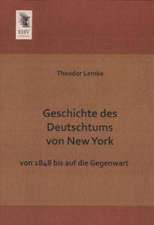A Concise History of Belgium: Cambridge Concise Histories
Autor Guy Vanthemsche, Roger De Peuteren Limba Engleză Paperback – 22 mar 2023
The small and densely populated nation of Belgium has played an important role in the history of Europe and other continents, especially Africa. It was a pioneering force in industry, trade, and finance during the Middle Ages, through early modern times and into the nineteenth and twentieth centuries. It introduced innovative political regimes and played a leading role in the creative arts. Yet this rich past is not widely known. This introductory history offers an accessible and rigorous overview of this small but important West-European country, synthesizing Belgium's main economic, social, political, and cultural developments from pre-Roman times until today. Today, this nation-state, born in 1830, is well-known for the rivalries between its two main language communities, and as a result is often considered a fragile or even an artificial political construct. This systematic chronological analysis of both present-day Belgium and the polities that preceded it throws fresh light on this controversial issue and demonstrates Belgium's enduring importance and influence.
| Toate formatele și edițiile | Preț | Express |
|---|---|---|
| Paperback (1) | 163.09 lei 3-5 săpt. | +34.99 lei 7-11 zile |
| Cambridge University Press – 22 mar 2023 | 163.09 lei 3-5 săpt. | +34.99 lei 7-11 zile |
| Hardback (1) | 529.82 lei 6-8 săpt. | |
| Cambridge University Press – 22 mar 2023 | 529.82 lei 6-8 săpt. |
Din seria Cambridge Concise Histories
-
 Preț: 199.27 lei
Preț: 199.27 lei -
 Preț: 250.69 lei
Preț: 250.69 lei -
 Preț: 191.12 lei
Preț: 191.12 lei -
 Preț: 162.68 lei
Preț: 162.68 lei -
 Preț: 163.91 lei
Preț: 163.91 lei -
 Preț: 165.99 lei
Preț: 165.99 lei -
 Preț: 196.59 lei
Preț: 196.59 lei -
 Preț: 164.94 lei
Preț: 164.94 lei -
 Preț: 169.32 lei
Preț: 169.32 lei -
 Preț: 171.13 lei
Preț: 171.13 lei -
 Preț: 173.18 lei
Preț: 173.18 lei -
 Preț: 163.31 lei
Preț: 163.31 lei -
 Preț: 211.13 lei
Preț: 211.13 lei -
 Preț: 169.08 lei
Preț: 169.08 lei -
 Preț: 161.64 lei
Preț: 161.64 lei -
 Preț: 157.71 lei
Preț: 157.71 lei -
 Preț: 208.95 lei
Preț: 208.95 lei -
 Preț: 211.80 lei
Preț: 211.80 lei -
 Preț: 164.94 lei
Preț: 164.94 lei -
 Preț: 178.90 lei
Preț: 178.90 lei -
 Preț: 163.91 lei
Preț: 163.91 lei -
 Preț: 158.53 lei
Preț: 158.53 lei -
 Preț: 163.91 lei
Preț: 163.91 lei -
 Preț: 164.94 lei
Preț: 164.94 lei -
 Preț: 141.04 lei
Preț: 141.04 lei -
 Preț: 197.72 lei
Preț: 197.72 lei -
 Preț: 167.22 lei
Preț: 167.22 lei -
 Preț: 169.08 lei
Preț: 169.08 lei -
 Preț: 179.49 lei
Preț: 179.49 lei -
 Preț: 164.94 lei
Preț: 164.94 lei -
 Preț: 165.13 lei
Preț: 165.13 lei -
 Preț: 210.46 lei
Preț: 210.46 lei -
 Preț: 202.13 lei
Preț: 202.13 lei -
 Preț: 157.71 lei
Preț: 157.71 lei -
 Preț: 197.72 lei
Preț: 197.72 lei - 11%
 Preț: 613.85 lei
Preț: 613.85 lei
Preț: 163.09 lei
Nou
31.21€ • 33.89$ • 26.22£
Carte disponibilă
Livrare economică 01-15 aprilie
Livrare express 18-22 martie pentru 44.98 lei
Specificații
ISBN-10: 0521127378
Pagini: 396
Dimensiuni: 140 x 216 x 21 mm
Greutate: 0.46 kg
Editura: Cambridge University Press
Colecția Cambridge University Press
Seria Cambridge Concise Histories
Locul publicării:Cambridge, United Kingdom
Cuprins
1. Earliest times – From prehistory to the end of the Roman Period; 2. The era of the Frankish kingdoms (fifth–tenth century); 3. The origins of the medieval principalities (tenth–fourteenth century); 4. Unifying the Netherlands: The Burgundy – Habsburg period (1384–1555); 5. The Spanish Netherlands (1555-ca. 1700); 6. The Austrian Netherlands (ca. 1700–1780); 7. The formation of a new nation-state (1780s–1830); 8. The consolidation of a Bourgeois regime (1831–1880s); 9. The Belgian nation-state at its height (1880s–1945); 10. The metamorphoses of a nation-state (from 1945 to the present day); Index.
Recenzii
'Ranging from the Roman Empire to the European Union, De Peuter and Vanthemsche's richly detailed history provides a panoramic view of the evolution of the country that Stefan Zweig called the 'crossroads of Europe.' Engaged with contemporary debates on European and national Belgian identity, this is a masterpiece of historical synthesis.' Carl J. Strikwerda, The College of William and Mary in Virginia
Descriere
The small and densely populated nation of Belgium has played an important role in the history of Europe and other continents, especially Africa. It was a pioneering force in industry, trade, and finance during the Middle Ages, through early modern times and into the nineteenth and twentieth centuries. It introduced innovative political regimes and played a leading role in the creative arts. Yet this rich past is not widely known. This introductory history offers an accessible and rigorous overview of this small but important West-European country, synthesizing Belgium's main economic, social, political, and cultural developments from pre-Roman times until today. Today, this nation-state, born in 1830, is well-known for the rivalries between its two main language communities, and as a result is often considered a fragile or even an artificial political construct. This systematic chronological analysis of both present-day Belgium and the polities that preceded it throws fresh light on this controversial issue and demonstrates Belgium's enduring importance and influence.
Notă biografică
Guy Vanthemsche is Professor Emeritus at the Free University Brussels, where he taught contemporary history for over three decades. He is the secretary of the Belgian Royal Historical Commission and a member of the Belgian Royal Academy of Overseas Sciences. He is the author of several books on nineteenth- and twentieth-century social, economic and political Belgian history, including Belgium and the Congo, 1885-1980 (Cambridge University Press, 2012).





























